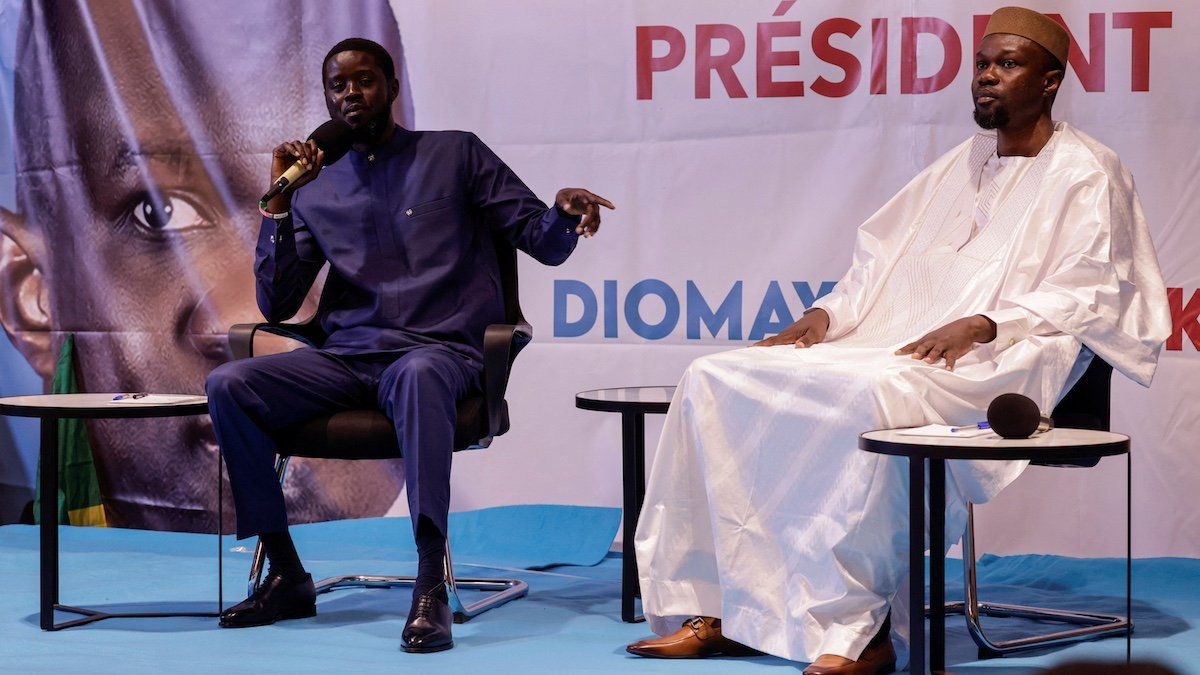Newly inaugurated Senegalese President Bassirou Diomaye Faye, in his first act in office, appointed his mentor Ousmane Sonko as prime minister on Wednesday. The popular, reform-oriented Sonko will be the driving force behind big changes. Case in point: Faye's manifesto proposed an audit of the oil, gas, and mining sectors, which could bring more cash from natural resource extraction into Dakar’s coffers.
Sonko was banned from running for president in the most recent elections, but Faye subbed in, even using the slogan “Diomaye is Sonko.” Sonko is now calling the shots, says Eurasia Group analyst Tochi Eni-Kalu.
“Faye wasn't really a known political entity prior to his elevation to the PASTEF nomination,” he says, referring to Sonko’s political party. Faye could build a base of power, but Eni-Kalu says “he will likely stick to Sonko’s line, at least in the early stages of his presidency.”
Indeed, Sonko said he would provide a list of ministers for Faye — essentially appointing them himself. And when Senegal holds parliamentary elections, which could happen as soon as later this year, Sonko will be the figurehead voters rally toward.
Once they have a legislative majority, it’s a trickier balancing act to please both voters and investors. Some of Sonko and Faye’s promises raise eyebrows among overseas interests, like the oil and gas audit, but voters are expecting money to flow more widely across society.
“People want change, and Sonko and Faye intend to deliver change,” says Eni-Kalu. “But they’re going to sand down some of their more radical policies to pacify investors.”
